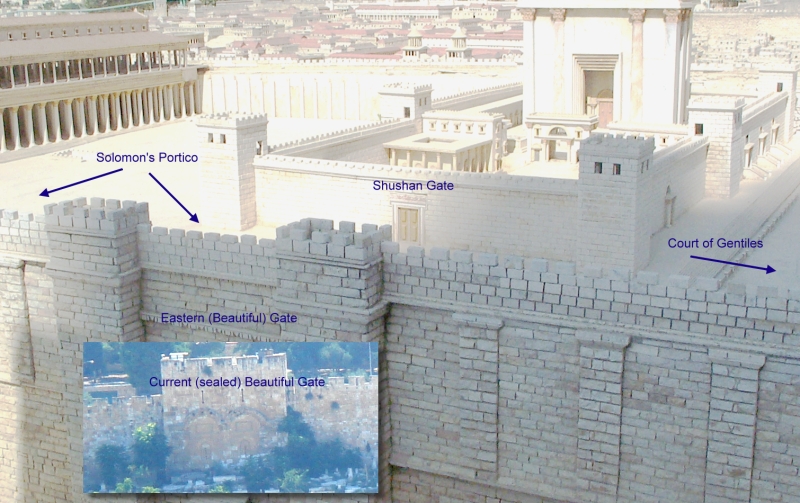Lesson Two
Torah and Angels
“Therefore we must give the more earnest heed to the things we have heard, lest we drift away. For if the word spoken through angels proved steadfast, and every transgression and disobedience received a just reward, how shall we escape if we neglect so great a salvation, which at the first began to be spoken by the L-rd, and was confirmed to us by those who heard Him.”
Hebrews 2:1-3
Introduction
- Previously, we looked briefly at the common misinterpretation of Hebrews, i.e. a letter to Jews, to convince them not to “relapse” into Judaism. There are many significant problems with this view – but one problem is, why, if arguing about the overturning of the “Judaic system”, is the writer reluctant to tell them to leave it? He never does. We will continue to uncover why this is true; and why the common view misses the very point of the book.
- Who wrote the book?
- Who received it?
- When was it written?
- From where was it written?
- Why was it written? 13:22: Written as a letter of exhortation. 2:1-3; 3:12; 4:14; 5:12-6:1; 10:24-30; 12:25 (1:1): Warning and encouragement.
- It is about olam haba [World to Come] (2:5)
Acts: Historical and Cultural Context
- Acts 3:1-25:
- 9 th hour prayers (Minchah)
- Believers meet in the Temple daily
- Peter’s message is not a message foreign to Jewish ears (Repent, be turned, hear – Deut 13)
- Acts 4:1-22;33:
- Priests, Sadducees stopped Peter and John – why?
- Resurrection of the dead – a threat to Sadducees, 5,000 added to believers.
- Acts 5:12-42:
- Primary question and charge related to resurrection of the dead.
- The Pharisee, Gamliel not against the believers.
- At the beginning, this is an ‘inter-Judaism’ squabble.
- Acts 6:1-8:1:
- Hebrew and Greek speaking believers. Our recipients’ identity – i.e. ‘Hebrews’?
- Many priests came to faith. What sect were they from? Who would be alarmed by this?
- Who disputed with Stephen – and what were the accusations? Were they true?
- What was Stephen’s clincher? Was Stephen preaching ‘Grace’ vs. ‘Law’?
- “You received the Torah by the direction of angels and have not kept it…”

The Torah and Angels
- Acts 7:53: The Torah [Law] linked to angels.
- Acts 7:37-39: Torah linked to ‘the Angel’ – the ‘Angel’ linked to the ‘Prophet like Moses’ (i.e. Messiah).
- Ps 68:17; Deut 33:2: G-d’s throne – attended by angels – at Sinai.
- Gal 3:19: Torah ordained by angels, through Moses.
- Aggelos: Messengers. Not necessarily or only angelic beings.
- Heb 1:1: Spoke through prophets, or messengers.
- Heb 1:1-7; 2:2: The ‘Word’ spoken by angels (messengers, and/or angelic beings).
- Heb 1:2: Compare (not contrast) how G-d has spoken through Messiah.
- Heb 2:1-9: A main point in these two chapters, is this: kal v’chomer [light to heavy]. The writer is likely drawing on imagery from Scripture and some legend to make a point, i.e. “How much more…”
A Place to Stand
- Archimedes said, “Give me a place to stand and a lever long enough and I will move the world.” – the ‘lever’ of Heb 2:2-3 is the Torah, the Law. The discussion of ‘angels’ in chapters 1 and 2 is a reflection upon Torah.
- Acts 6:11-15; 7:51-54: Would the ‘Hebrews’ who received the epistle have listened to the false accusation against Stephen?
- Would they have continued to read this epistle, if the argument being made was the same as the one against Stephen?
- The kal v’chomer [light to heavy] would have been a powerful argument for them – because they revered the Torah.
- It does not stand in antithesis to Yeshua. It is the light – Yeshua is the heavy.
- This is why historical and literary context are important.
Summary
- The primary recipients of this epistle are defined by Acts. They were thoroughly immersed in the culture and religious practice in Jerusalem. The way the writer uses their background is not meant as a discouragement in that – but rather the writer uses their knowledge and experience to make a point. The point is one of encouragement.
- Stephen, even though he was a Hellenist (Greek speaker), understood the validity of what was spoken through Moses – and used it to point to Yeshua